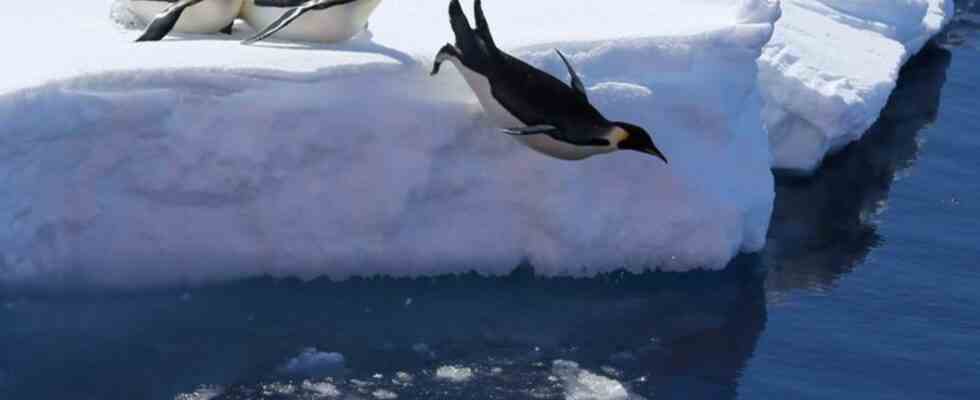natural reserve
Struggles for marine protected areas: Antarctic conference started
Emperor penguins jump off an ice edge into the sea. photo
© Liu Shiping/XinHua/dpa
It’s about surviving the treasures of the sea. The German Bundestag is also trying to better protect the species-rich Weddell Sea. But a breakthrough is again in doubt.
More than two dozen countries around the world will again be fighting over the future of the Southern Ocean over the next two weeks: the 41st conference of the Antarctic Commission CCAMLR began on Monday in Hobart, Tasmania. Environmentalists from all over the world are urgently calling for the designation of new marine protected areas in the region and stricter regulations for krill fishing because of the many dangers to the fragile ecosystem.
In the first week of the conference, the scientific committee meets and discusses the upcoming topics. From the results, he makes his recommendation for the commission meeting in the second week.
In particular, it is about an area of almost four million square kilometers in front of East Antarctica, on the Antarctic Peninsula and in the species-rich Weddell Sea. Although 25 of the 27 members are in favor of the project, there has never been a breakthrough due to opposition from China and Russia. CCAMLR decisions must be unanimous.
Applications always unsuccessful
On Friday, the German Bundestag unanimously voted in favor of a marine protection area in the Weddell Sea. In Hobart, the federal government now wants to push ahead with the facility. The protected area in the Weddell Sea with its many animal species would be the largest marine protected area in the world. Since 2016, applications for expulsion have been made regularly – so far without success.
Another topic is krill fishing. The tiny crustaceans are caught to produce things like oil and fish feed. But the increasing krill fishery poses a threat to Antarctica because all animals living in the area depend on the krill. “An increase in krill catches is to be expected as CCAMLR receives information on the construction of giant krill trawlers from several fishing countries,” warned Claire Christian, director of the Antarctic and Southern Ocean Coalition.
The Convention for the Conservation of Antarctic Marine Living Resources (CCAMLR) was established in 1980. The commission consists of 26 states and the EU.
Information on the 41st Conference of CCAMLR

